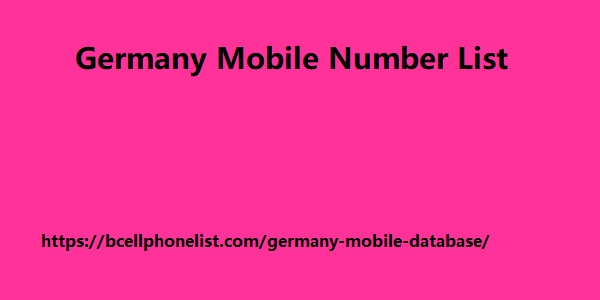Post by account_disabled on Mar 11, 2024 3:30:03 GMT
Very easily, which makes it paradoxical and worrying that this type of signature is one of the most used by most people to sign and give their consent in many contracts. And documents. B).- electronic signature issued by certificate: here we are talking about the simple electronic signature performed by using an electronic signature certificate. This signature operates on the basis of an asymmetric or public key cryptographic system, where the certificate holder has a pair of keys that have been provided by a certification service provider (csp) or certificate issuing entity, which attests that the pair of keys are associated with the person who appears signing the document. This signature can also be accompanied by second validations or means of exclusive control that provide greater security to the signatory. Finally, it is very important to keep in mind that the psc or entity issuing the certificates may or may not be a locally accredited entity in the different latam countries, to provide advanced electronic or digital signature services, which we will explain below. Furthermore, it is important to consider that this type of signature is much more secure than the digitalized signature and can be used for the vast majority of contracts and documents , as established by the different latin american legislation.
. Digital signature or advanced electronic signature ( called digital signature in countries such as peru, colombia, brazil and argentina or advanced electronic signature, in mexico and chile ). This signature requires the use of a signature certificate, issued by an organization or Germany Mobile Number List legal entity that complies with local regulations for advanced electronic or digital signatures, and which is also accredited by the competent authority of a country (in this case latin america). To issue digital signature certificates or advanced electronic signature. Furthermore, in general terms, each latin american country additionally requires a specific type of exclusive control means to sign digitally or in an advanced way (usb or pendrives, otp or one time password, biometrics, among others). For example, in chile it is necessary to carry out this accreditation before an institution dependent on the ministry of economy of chile, specifically called “accrediting entity”; in peru this accreditation is carried out with indecopi; in mexico before the ministry of economy; in colombia before the onac (national accreditation body); in argentina before the government secretariat for modernization; or in brazil, before the icp. E-book cover you will also like our guide to electronic signature in latam advantages of the electronic signature in latam practicality : the digital signature (or advanced electronic signature) generally requires in latam (peru or argentina, for example) that the signer carry usb or other physical media.

The complex thing about this is that, for example, in a contract, both parties must carry these physical means to sign and that will be impractical in addition to being an infrequent event. The above has led to the digital or advanced signature having low use in latin america, giving more space to the simple electronic signature with a certificate. Additionally, there are providers and legislation, such as in chile, that have allowed the advanced electronic signature to be carried out with biometrics (fingerprint, iris, etc.), allowing greater use of it, since in this example the physical features and the person's identity document will be the exclusive means of control that the law requires. Time and money costs: certificates and their complementary elements of advanced digital or electronic signature (such as a usb or pendrive) are generally expensive, both to obtain or buy them. Furthermore, the digital signature is generally charged for each transaction carried out and this value may increase when it comes to a digital signature or advanced signature. Probative value: the digital (or advanced electronic) signature is non-repudiable (the burden of proof is on whoever claims it as false), when in the case of a simple electronic signature, whoever presents it as evidence must demonstrate its authenticity.






